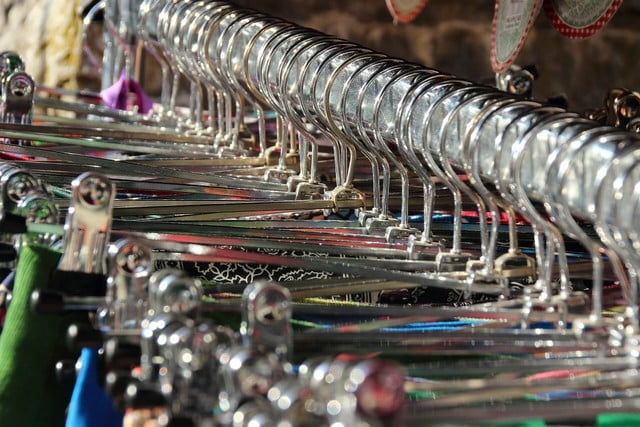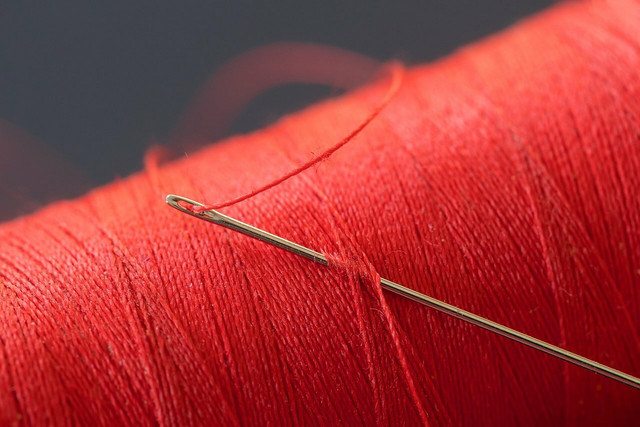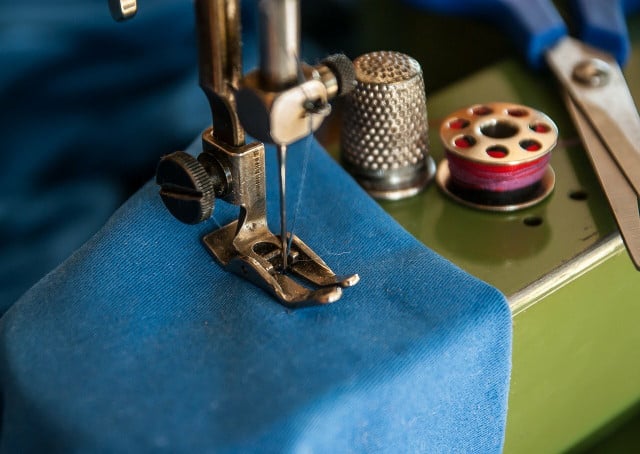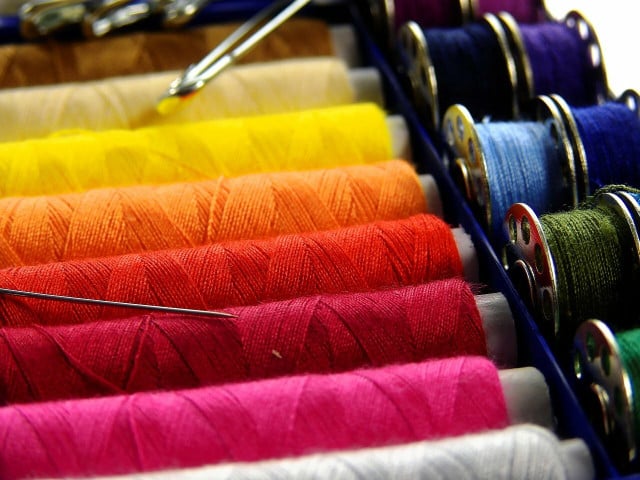Wondering what to do with your old clothes? Slow down fast fashion and the raging textile industry by repairing, recycling, and revamping your old clothes.
The fast fashion and textile industry, according to the World Bank, needs to reinvent itself. But research shows little signs of it really slowing down — greedy corporations are bent on playing the game in terms of profit and growth; an economic model detrimental to the environment and exploitative of working people.
Doing something useful with your old clothes is a tiny step you can take to disrupt this unsustainable industry.
Fighting the Fast Fashion Industry

(Foto: CC0 / Pixabay / Hans)
According to the United Nations Environment Programme, the fashion and textile industry is responsible for around 2 to 8 percent of global carbon emissions. The industry is a huge consumer of water (using close to 4,000 liters to produce a single pair of jeans) and it’s a devastating contributor to the plastic pollution that is contaminating the world’s food chain. According to the United Nations Conference on Trade and Development, the industry is responsible for about half a million plastic microfibers entering the ocean every year – the equivalent of 50 million bottles.
The World Bank argues that “without consumers making a change, the efforts of [all the actors in the industry] are in vain. [Consumers] must become aware of what they buy.” Others argue that consumers quitting fast fashion won’t change the anti-environmental and exploitative grind of the entire industry. It’s important to consider, too, that for many people fast fashion is what’s affordable. But then, so are secondhand clothes.
No matter the socio-economic conditions of this complex problem, you’re probably here because you’ve got a closet full of old clothes you want to get rid of in the most ethical way possible. Here are 10 ideas to help you clear out those old clothes.
1. Host a Clothing Swap
Call your friends who also need to clear their closet and invite them over to dump their unwanted pieces in the middle of your living room. Then enjoy an evening of finding fashionable treasures among your trendy friends’ textile trash.
2. Donate Your Old Clothes to Companies, Charities, or Communities



(Foto: CC0 / Pixabay / Victoria_Borodinova)
So you had the swap, you found some nice pieces, but now you’re stuck with a pile of other people’s old clothes in your home. In America, places like Goodwill, Savers, and The Salvation Army are probably your best bet to quickly and simply hand over your old clothes. Their stores will try to sell them for a profit, of course. The clothes that don’t get sold to other consumers will be sold to recycling companies who turn them into reusable materials for other products; like stuffing for insulation and furniture. Keep in mind, however, that some clothes might see the landfill if they get wet along the way.
If you’re not in a rush, think about particular people in your community who might benefit from pieces you once prized. For example, if you’ve got good winter clothes to give away, you could contact a homeless shelter and see if they are seeking donations.
Be sure to ask the donation center or charity you use about how they handle their donations. Recent stories about “dead white men’s clothes” flooding African cities and destroying the local industry have revealed the grim reality of so-called developed nations’ consumption and donation habits.
3. Send Your Old Clothes to Recycling Centers
Savers and Goodwill might be able to resell your old clothes and provide quality pieces to people with lower incomes, but they’re also motivated by the desire for growth and profit that drive our consumer culture. If you’re skeptical of their practices – or have torn clothing to get rid of –, search for a local recycling center that might be able to better recycle your clothing.
4. Repurpose Textiles At Home



(Foto: CC0 / Pixabay / Khaligo)
So what can you do with old clothes that aren’t exactly sellable anymore? Here’s an idea: “New rags” seems like an oxymoron, so why would you buy them? Simply cut up your old textiles and transform them then into those always handy, essential cleaning tools.
5. Sell Your Old Clothes for Credit at a Local Boutique



(Foto: CC0 / Pixabay / meineresterampe)
Find a local boutique store and get rewarded with cash or store credit for your old clothes. You can keep your clothes — and your money — in the community by donating or possibly exchanging your old clothes with items at mom and pop stores.
6. Sell Your Old Clothes Online
If you’ve got some nice pieces that others might want to take off your hands, but you don’t know where to sell them, try posting pictures of your old clothes on an online marketplace. Many people shop for secondhand clothes on eBay, Facebook, or other online forums.
Check out these 6 Great Places to Buy and Sell Secondhand Clothes Online
7. Repair Broken Clothes At Home



(Foto: CC0 / Pixabay / Myriams-Fotos)
Not sure how to repair your dearly beloved but broken pieces? Find a needle and some string and learn about visible mending and other ways to fix your old clothes yourself. Sewing and mending used to be common household skills, but due to fast fashion and our crazy clothing buying habits, they’ve been all but forgotten.
8. Use Apparel Repair Shops



(Foto: CC0 / Pixabay / jackmac34)
If you’ve got a delicate or intricately stitched piece, seek out a local apparel repair shop (they’re still around!) and get a specialist to take care of it. Although alternations and repair can get pricey, you can consider the extra cost as an investment in your clothing, your community and the environment.
9. Upcycle Your Old Clothes



(Foto: CC0 / Pixabay / Bru-nO)
Get creative and revamp an old look with a new DIY design. Upcycling refers to the repair or redesign of recycled items in order to increase their value. The upcycling fashion trend has hit a high recently as more people are quitting fast fashion and becoming influenced by DIY culture and sustainability. Check out these upcycling designers for some sustainable inspiration.
10. Compost Your Old Clothes
Yey, you can compost old clothes – but only clothes made from natural fibers like pure wool, hemp, linen, or cotton, never synthetics like polyester, nylon, or acrylic yarn. Items with heavy prints should also stay off the compost pile. Composting fabrics can take a long time and you should only ever compost the odd item, never too many at once. Consider all other options first.
Read more:
- Can You Recycle Wrapping Paper?
- How to Recycle Shredded Paper – and How to Avoid Shredding it
- How to Defrost Your Freezer – Safe & Easy
Do you like this post?








